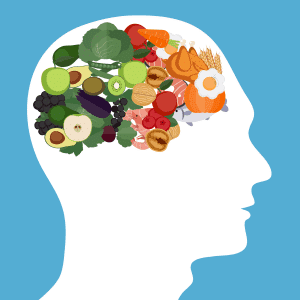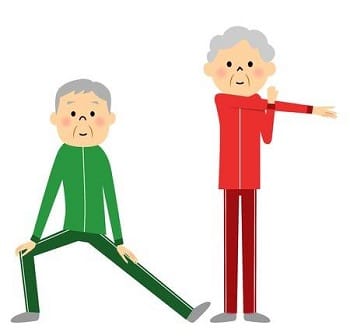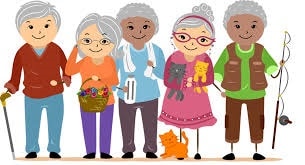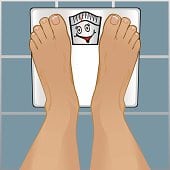A well thought-out gift goes far to brighten the day of a senior care home resident. Facility restrictions or a lack of personal space can make shopping tough, but there are some items that will delight and still be practical in a care home setting.
When buying gifts for seniors, consider the interests and hobbies they had prior to entering the home. There may be activities they miss and with some imagination can still do in their new residence. 
Here are some ideas to brighten their days and spark those interests again.
- Time and hope – Seniors have a lot of free time, while the rest of us struggle with busy schedules. Make a coupon book for your favorite Senior. Coupons could be for an hour of reading aloud to each other, making a craft together or even a field trip to their favorite coffee house or store.
- Photo albums – Many residents like to meet up in the lounge or cafeteria and talk often turns to family. Make an album of favorite photos or memorabilia. Picture books from online services are nice. Seniors savvy with technology may appreciate digital photo frames, something especially appropriate for those confined to bed.
- Reigniting hobbies – Did your loved one enjoy playing cards? Were they bird watchers? Did they enjoy the stars? A deck of large print cards may help and inspire them to interact with fellow residents. A small telescope may allow them to look at the stars again. Most residents have a window either in their room or a lounge. Ask if a bird feeder could be installed. If there is already a feeder, give a bird watching book or magazine subscription. Do they enjoy reading their local newspaper? Buy them a subscription.
- Practical gifts – Think socks and blankets. Slip resistant socks are especially useful, because many seniors are a bit unsteady. Blankets can be simple or have a special design or logo. Is your loved one a football fan, find a blanket with their favorite team logo. These things should be easily washable.
- Hospitality – Some seniors have many family members visiting. They may appreciate coloring books and crayons or pencils, to help entertain visiting children. Of course, adult coloring books may entertain the resident and adult visitors.
- Cash – Most facilities have individual resident accounts to use for extras. If you wish to help, ask to deposit money for a trip to the facility’s salon or some extra shopping or to help pay cable or phone bills.
There are some guidelines to consider before buying gifts for facility residents to avoid some unpleasant results:
- Security – Facilities do their best to secure residents’ possessions, but with so many people passing through the facility – think residents, staff, visitors – things do disappear. If you give an expensive or highly sentimental gift, alert the staff and ask how to keep it safe.
- Fragile items – A porcelain teapot or figurine may be perfect for your aunt, but consider if she has tremors or other shakiness that may cause her to drop it. If so, perhaps it can be placed on a high shelf or dresser where it can be seen. This also saves the item from being bumped by staff attending to the resident or cleaning the room
- Safety – As mentioned above regarding the socks, be sure the gift is safe. All footwear should be slip resistant. Take into account any allergies or illnesses when giving food. A lot of candy for a diabetic could cause issues.
Seniors in care facilities enjoy gifts for holidays, their birthdays or just because. So, be creative in finding gifts for seniors. It will make both of you smile.





 get the treatment they need and deserve. Where each level of care offer services that meet specific needs, everyone has room for improvement. One particular area of concern happens to be dental hygiene. Here are a few suggestions for improving dental hygiene when residing in a nursing home.
get the treatment they need and deserve. Where each level of care offer services that meet specific needs, everyone has room for improvement. One particular area of concern happens to be dental hygiene. Here are a few suggestions for improving dental hygiene when residing in a nursing home.

